Delegates on Table 4 at the opening plenary are invited to record their thoughts here.
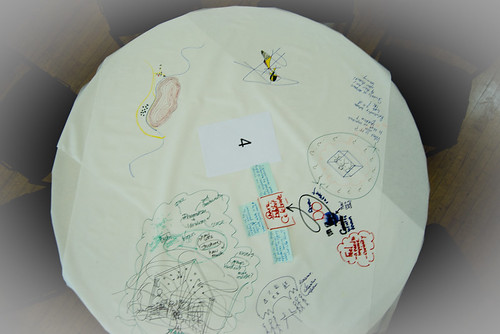
These were the people on table 4 - Richard Rowe; Richard Millwood; Stephen Rowland; Angela Brew; Rhi Smith; Jamie Wood
At the outset there was some reluctance to do the drawing, but things are hotting up - we're feeding back on the drawings!!!
Museums - Indiana Jones - going out into broader world - breaking down the barriers - getting people to look closely at ojbects and go outwards from that
Psychology - teaching Statistics in context of experiments - collaboration vs. individualisation/ isolation - Psychological researchers
Repeated loop of plan-do-review with reflection on activity. Consider what is known - 2 moments of 'feeling' - feel the need to improve/ change something and how to do it - feel achievement of outcome. Background is work done to develop work focussed learning courses using action inquiry.
Outside the box
logic of inquiry - vs. 'doodling'
doodling has commonalities with inquiry - 'open' - meaningless in some sense - make some sense out of pattern that does not necessarily make sense - we face a world that is messy and we try to make patterns out of it
landscape and a map - exploring a landscape - how many different directions can i go to explore the terrain - and explore as many bits of it you like and will you find something different whichever direction that you go in. But if you went in 10 different directions you'd see same landscape from 10 different perspectives. Map suggests that it might be easy to get from a-b, but not necessarily from b-c.
'Reality' of the map - interesting - you see a different perception of reality (is it the same reality?
Representation of reality is the same, but is it?
Tension between top-down representations of reality and bottom up ones coming from practitioners - you need to take your own personal view and be involved in the inquiry to make progress. If you want practitioners
A while later...
Struggle between pushing people and giving them independence and
fundamental philosophy of learning - do learners always come to learn - not always - there are things that students don't want/ aren't interested in
- e.g. statistics in Psychology/ object handling/ using the library etc - things that students need to do and get through in order to do their learning, but that they're not necessarily that interested in...
Feelings - and how they relate to inquiry - museums - give people the objects and data that society has collected and then lets them loose on that- rather than letting them loose on the world. How far can we make museums/ maps etc egalitarian places.
Should museums be egalitarian spaces? this is getting philosophical - i like it!
visual literacy important - awareness of the ways in which objects/ images bias them - people need initital 'magnifying' glass to learn how to see these biases - museums (or ebl or ibl) provide structure to that
museum of sydney - collection of objects at entrance that don't necessarily relate to each other - then it invites visitor to make sense of random objects
nature of inquiry
'creativity hour'/ 'inquiry hour' - a nightmare!!!
philosophical approaches to inquiry
degree of mediation/ freedom of the activity - activity doesn't necessarily mean inquiry.
e.g. traditional lecture can be essential to inquiry; while fieldwork can be just jumping through the hoops
is playing the piano/ learning to do so an inquiry process - which 'bit' of the process?
'it is essential to memorise' - it is only once you have memorised that you can go create for yourself...
do we mean the making of the music or the learning the dexterity etc.
Depends on the perspective of the individual - we can set up stuff to do, but if individual student comes with set ideas/ their 'basic life inquiry' then it becomes a life inquiry; but if it doesn't then you're basically going through the hoops
Students - 'tell us the essay question'
in doing that - students have done a successful inquiry into the educational system but not necessarily been creative
museums - challenging students not only about educational system, but what knowledge is - that facts are valued culturally within western culture. there are all these game shows that contain facts. Reinforced at every level. Fact that there are different realities comes out with politicians talking about facts in different ways.
by getting students to take part in inquiries we are challenging perceptions and stereotypes
what is it is the most common question is the museum - what is it?
stuff that does not have labels is seen to be less valuable...
same question is importan for me on IBL - what is it? But then is that actually a valuable question to be asking?
Phil's back - now for a commercial break from Joseph ;)
Adios for now...
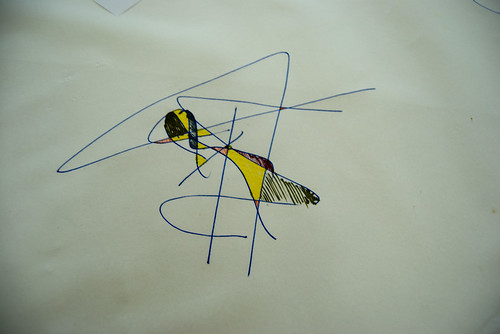
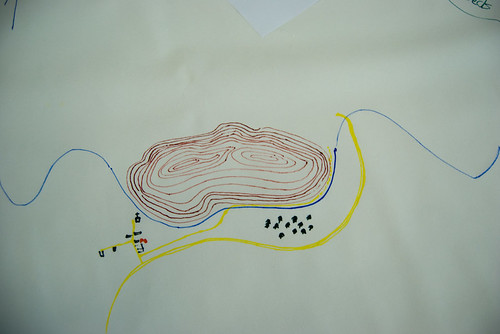
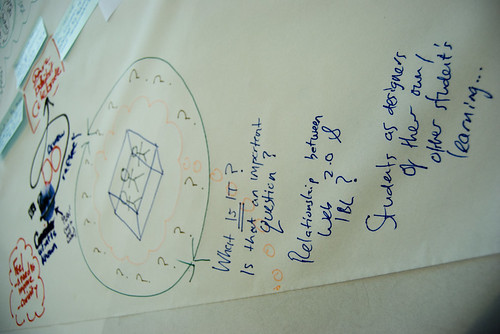
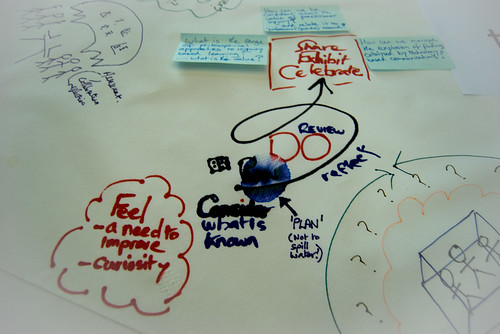
Comments (1)
Table 4 said
at 2:12 pm on Jun 25, 2008
now we're post-it-ing - individually - all gone quiet...
You don't have permission to comment on this page.